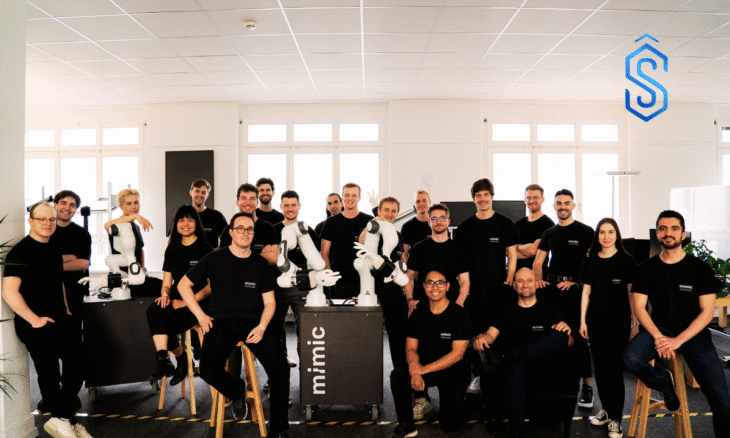Zurich, Switzerland: mimic robotics, a Zurich-based pioneer in frontier physical AI, has secured $16 million in funding to accelerate the development and deployment of intelligent robots capable of performing complex, dexterous tasks in manufacturing, logistics, and other industrial sectors.
The funding round was led by Elaia, with participation from Speedinvest, Founderful, 1st Kind, 10X Founders, 2100 Ventures, and the Sequoia Scout Fund, bringing mimic robotics’ total funding to over $20 million.
The new investment will help the company scale its foundation AI model and humanoid robotic hands, strengthening its partnerships with global industrial players.
Also Read: Paar Autonomy Secures INR 3.5 Crore Pre-Seed Funding from Venture Catalysts
mimic robotics Targets Industrial Dexterity Through Physical AI
Millions of intricate manual operations across factory floors still rely heavily on human expertise. Traditional automation systems are ill-equipped to handle such nuanced, variable tasks.
With increasing labor shortages, rising costs, and the reshoring of production, the need for adaptable and intelligent robotics has intensified.
Addressing this gap, mimic robotics combines AI-driven robotic hands with off-the-shelf robotic arms to create systems capable of human-level dexterity – but with simpler, faster, and more reliable deployment.
“Our approach merges AI learning with practical design,” said Stephan-Daniel Gravert, Co-founder and CPO at mimic robotics. “Instead of building full humanoids, we focus on dexterous hands that can be integrated into existing industrial setups.”
Human Demonstrations Power mimic robotics’ Learning Models
At the core of mimic robotics’ technology is its imitation learning framework. Skilled human operators wear mimic’s proprietary devices while performing their regular work, allowing the system to capture high-fidelity motion data directly from live production environments.
This real-world data trains AI models to reproduce human-level precision autonomously – enabling robots to self-correct, adapt to changing positions, and handle unexpected disturbances.
“Our general-purpose AI models bring human dexterity to machines,” said Elvis Nava, Co-founder and CTO of mimic robotics. “This lets us automate manual labor in a way that was previously out of reach.”
Also Read: IIT Bombay Project Titanium Seeks Co-Founders to Scale Deep-Tech Startups
Market Opportunity and Global Impact
Analysts estimate that the global humanoid and dexterous robotics market could reach $38 billion by 2035, within a broader robotics industry projected to grow between $200 billion and $1 trillion by 2040.
With this funding, mimic robotics positions itself as Europe’s front-runner in general-purpose robotics – a space historically dominated by U.S. and Chinese players.
mimic robotics’ pilot projects are already underway with Fortune 500 manufacturers, global automotive firms, and multinational logistics providers, signaling strong demand across labor-intensive industries.
Founded in 2024 as a spin-off from ETH Zurich, mimic robotics brings together a multidisciplinary team of 25 engineers and researchers.
The company has previously received non-dilutive support from Switzerland’s federal innovation agency and participated in the AWS Generative AI Accelerator, which supports startups applying AI to real-world challenges.
“We’re at a turning point where learning-based systems meet real industrial needs,” said Stefan Weirich, Co-founder and CEO of mimic robotics. “Our mission is to close the gap between what AI achieves in labs and what factories need on the ground.”
Investors Back Scalable AI Approach
“mimic robotics is solving one of the hardest challenges in physical AI – dexterous manipulation,” said Clément Vanden Driessche, Partner at Elaia. “Their integrated approach combining robotic hardware, foundation AI models, and unique data acquisition opens vast automation opportunities.”
Andreas Schwarzenbrunner, General Partner at Speedinvest, added: “Europe’s edge lies in the combination of engineering and research excellence. mimic robotics embodies that – turning advanced AI into industrial capability.”






